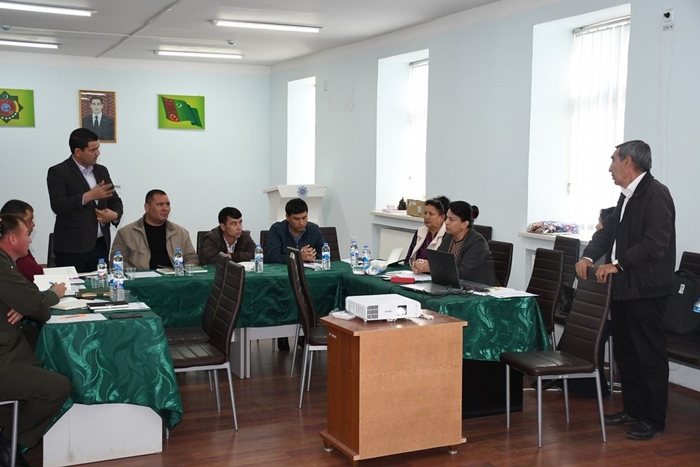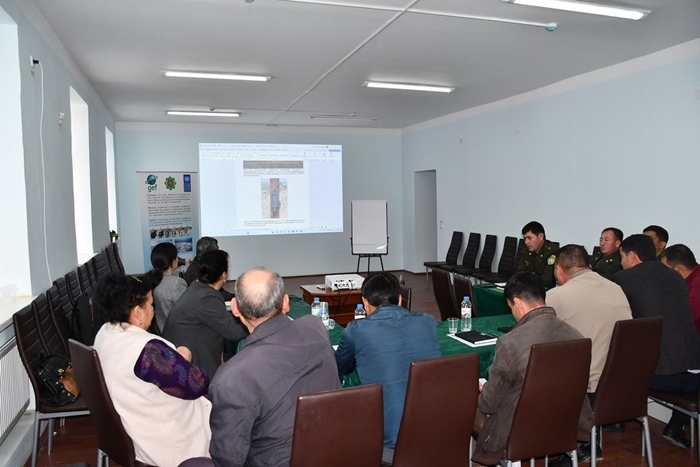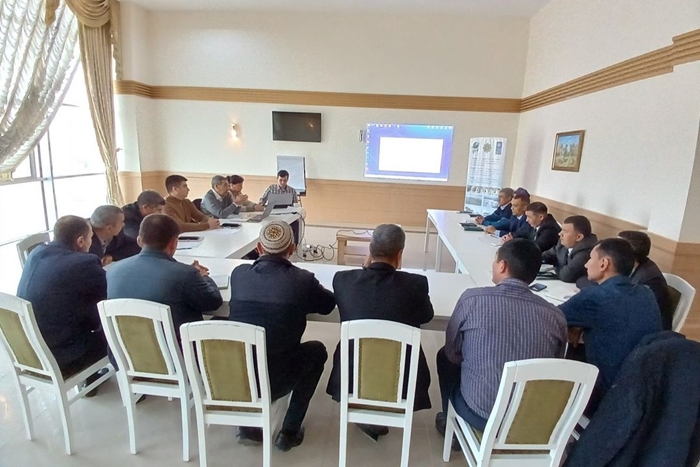 From 16 to 28 November 2023, project of UNDP and the Ministry of Environmental Protection of Turkmenistan “Conservation and Sustainable Management of Land Resources and High Nature Value Ecosystems in the Aral Sea Basin for Multiple Benefits”, held seminars on ensuring environmental legislation in a transboundary context.
From 16 to 28 November 2023, project of UNDP and the Ministry of Environmental Protection of Turkmenistan “Conservation and Sustainable Management of Land Resources and High Nature Value Ecosystems in the Aral Sea Basin for Multiple Benefits”, held seminars on ensuring environmental legislation in a transboundary context.
The seminars were conducted on the basis of the Amudarya State Reserve in Seydi and the Kaplankyr State Reserve in Dashoguz brought together representatives of the State Border Service, governorates of Lebap and Dashoguz provinces, districts of Darganata, Deinau, S. Turkmenbashi and Ruhubelent and environmental departments, UNDP Turkmenistan reports.
A representative of the State Border Service of Turkmenistan captivated the audience with an insightful presentation on the current rules and procedures governing the border strip, as stipulated by the Law of Turkmenistan “On the State Border of Turkmenistan”.
As known, the territories of the Amudarya and Kaplankyr nature reserves are of a cross–border nature, the first is located near the border with Uzbekistan, the second one is adjacent to the border with Kazakhstan.
During the recent Regional Dialogue on Transboundary Conservation in Central Asia held in Tashkent, both of these reserves were mentioned in the speeches of Turkmen experts. Many participants of the forum noted in their presentations the importance of involving border services in solving issues of management of transboundary ecosystems.
In line with this recognition, Turkmenistan has already initiated efforts to engage border services in environmental discussions as can be seen from the example of recent seminars held in Dashoguz and Seidi.
The project “Conservation and Sustainable Management of Land Resources and High Nature Value Ecosystems in the Aral Sea Basin for Multiple Benefits” was launched in 2021. The objective of the five-year project is to promote land degradation neutrality, restore and improve the use of land and water resources in Turkmenistan’s Amudarya watershed to enhance the sustainability and resilience of livelihoods and globally significant ecosystems. ///nCa, 30 November 2023

